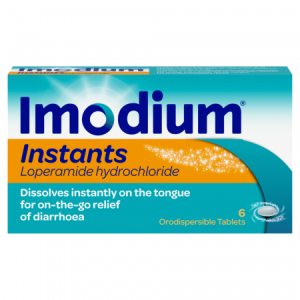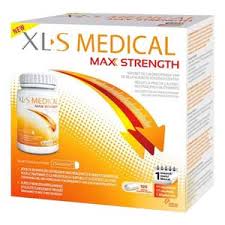Rigevidon Contraceptive Pill
- Safe & Discreet Available 24/7
- Fully inspected and regulated service
My Chemist Plus offers the best place to buy Rigevidon pill with next day delivery available within the UK. To purchase Rigevidon, you will need a prescription, which is available through our free online consultation service. Each item you purchase will sent via secure and discreet packaging to ensure that you receive your medicine in a complete and efficient manner.
What is Rigevidon?
Rigevidon is a prescription medicine used for the prevention of becoming pregnant and contains two types of female sex hormones- oestrogenethinylestradiol and progestogen levonorgestrel in a low dose.
Taking this combined contraceptive pill protects you against getting pregnant in three ways:
- By stopping the ovary from releasing an egg each month
- By thickening the fluid making it more difficult for the sperm to reach the egg
- By altering the lining of the womb to make it less likely to accept a fertilised egg
How to take Rigevidon
- Take one Rigevidonevery day for 21 days, naturally concluding the course
- Each packet of Rigevidon contraceptive pill has strips of 21 pills- these are marked with a specified day
- Ensure that you take the pill at the same time, every day
- You should begin the course by taking one marked with the correct current day of the week
- Each strip will have arrows guiding you to the next contraceptive pill, taking one each day until the course is finished
- Each pill should be swallowed whole (not chewed) – taken with water if needed
- Once the course is finished, have 7 days of pill-free days.
During your 7 pill free days you should have withdrawal bleeding akin to your period on around day 2 or 3.
You should start your next strip of pills on the 8th day (after the 7 pill free days) even if the bleeding has not stopped. Provided you take Rigevidon correctly, you will always begin a new strip on the same day of the week and should always have your period on the same day of the month.
Starting the first pack
If no oral contraception has been used during the preceding cycle
- Take the first pill on the first day of your period – this is the first day of your cycle when bleeding starts
- Take a pill marked for that day of the week (e.g. if your period begins on a Tuesday, take the pill in the strip marked Tuesday)
- Follow the directional arrow and continue taking one pill each day until the strip is empty
- If you begin on days 2-5 of your period, you should use an additional method of contraception (such as condoms) for the first 7 pill taking days, but this is only for the first pack
- You do not need to use another method of contraception during the 7 day pill break provided you have taken the 21 pills correctly and you being the next pack on time.
Starting Rigevidon 28
You can begin taking Rigevidon anytime during your menstrual cycle. Starting Rigevidon 28 during 1-5 days of you period means you will be protected from pregnancy immediately and will not need additional contraception. However, if the menstrual cycle is short, starting on 2-5 days may not protect you immediately and extra contraception should be used.
If the pill is started any other time during the menstrual cycle, you will not be protected until 7 days have passed.
Rigevidon missed pill
If you take a Rigevidon pill 12 hours late or less, you are still protected against pregnancy if you take this as soon as you remember. You should continue to take the pill at the usual time, this may result in taking two pills in more than one day.
If you take a Rigevidon pill more than 12 hours late, the protection against pregnancy will be reduced and additional contraception will be required.
If you have missed 2 or more pills (or have started your pack 2 days late) you will not be protected against pregnancy. You should take the missed pill as soon as possible; this may result in taking two pills on more than one day (though you should not take more than this). Continue taking the remaining tablets within the pack but you will not be protected from pregnancy for 7 days after remembering the missed pill. Therefore, you should either refrain from sex during this time or use another method of contraception such as condoms.
Further information can be found on the manufacturersPatient Information Leaflet and printed if required
Rigevidon Side Effects
As with any medication side effects can occur when taking Rigevidon but these do not affect everyone. If you experience any of the side effects, or these become severe or persistent, please consult your doctor.
Common side effects include:
- Vaginitis
- Mood swings / depression
- Altered sexual desire
- Nervousness
- Dizziness
- Feeling sick
- Abdominal pain
- Acne
Uncommon side effects include:
- Changes in appetite
- Elevated blood pressure
- Abdominal cramps
- Bloating
- Rashes
- Yellow, brown patches on the skin
- Hair loss
- Altered blood fats
Rare side effects include:
- Severe allergic reaction
- Glucose intolerance
- Eye irritation when wearing contact lenses
- Jaundice
- A person can also experience a very rare side effect, including Benigus or malignant tumour of the liver, lupus etc. These are all very rare (1 in 10,000 people) with more listed within your patient information leaflet.
Is Rigevidon Safe
Rigevidon is a safe combined pill and contains the same ingredients as other branded and non-branded combined pills.
All combined pills do carry some risks when taking them and it is advised that anyone who has an increased chance of experiencing blood clots should avoid taking these, including women over 35 who smoke.
GedarelandRigevidon Birth Control
Gedarel and Rigevidon both contain ethinylestradiol, however Gedarel contains desogestrel whilst Rigevidon contains levonorgestrel. If you are unsure which contraceptive pill is right for you, please consult your doctor first.
A study over how the different combinations of Gedarel and Rigevidon worked over time found that Desogestrel and Ethinylestradoil significantly reduces severe acne and hirsutism without any substantial change in weight.
You can find more information here.
Alternatives to Rigevidon Pill
Alternatives to Rigevidon, which are available at My Chemist Plusinclude:
- Microgynon 30
Combined Oral Contraceptive
The combined pill is another term for the pill, with the combined pill containing two artificial versions of the female hormones oestrogen and progesterone which are produced naturally in the ovaries. The combined pill as a prevention of becoming pregnant is effective by 99%.
The recommended way to use the pill is to take one every day for 21 days then have a break for 7 days, during which time you should have a period. After 7 days you begin to take the pill again.
It is advised to take the pill at the same time every day to form a routine, otherwise there is a risk of pregnancy, particularly if you miss a pill or vomit or have severe diarrhoea.
Please note that some medicines can affect the efficiency of the pill so you should consult your doctor before taking any other tablets.
If you suffer from heavy or painful periods, PMS (premenstrual syndrome) or endometriosis the combined pill can be an effective medication to help ease your symptoms.
Please note that the pill does not protect against sexually transmitted infections (STIs) so you would require a condom to protect against this.
How the combined pill works
- It prevents the ovaries from releasing an egg each month (ovulation)
- It thickens the mucus in the neck of the womb, so it is harder for sperm to penetrate the womb and reach an egg
- It thins the lining of the womb, so there is less chance of a fertilised egg implanting into the womb and being able to grow
There are a variety of brands of pill- these are made up of three main types:
Monophasic 21-day pills
The most common type of pill which has the same amount of hormone in it. One pill is taken every day for 21 days and then a break of 7 days. Microgynon, Marvelon, Yasmin and Cilest are all examples of this type of pill.
Phasic 21-day pills
Phasic pills contain two to three sections of different coloured pills within a pack with each section containing a different level of hormones. One pill is taken every day for 21 days and then a break of 7 days. It is important that Phasic pills are taken in the right order. Logynon is an example of this type of pill.
Every day (ED) pills
With ED pills there are 21 active pills and 7 inactive (dummy) pills within each pack. The two types of pills have a different appearance with one pill taken every day for 28 days with no break between the packets. It is important that the every day pills are taken in the right order. Microgynon ED is an example of this type of pill.
Please ensure that you follow the instructions that come with your packet. If you have any questions you should consult your GP, practice nurse or pharmacist.
What to do if you miss a pill through sickness
If you miss a pill due to being sick, you should use another form of contraception until you have taken the pill again for 7 days without vomiting
Who can use the combined pill
If there are medical restrictions why you cannot take the pill and you are a non-smoker, you can take the pill until the menopause. However, the pill is not the most suitable method of contraception, so you should consult your doctor, nurse or pharmacist to see if this is right for you.
You should not take the pill if you:
- are pregnant
- smoke and are 35 or older
- stopped smoking less than a year ago and are 35 or older
- are very overweight
- take certain medicines (ask your GP or a health professional at a contraception clinic about this)
You should also not take the pill if you have (or have had):
- thrombosis (a blood clot) in a vein, for example in your leg or lungs
- a stroke or any other disease that narrows the arteries
- anyone in your close family having a blood clot under the age of 45
- a heart abnormality or heart disease, including high blood pressure
- severe migraines, especially with aura (warning symptoms)
- breast cancer
- disease of the gallbladder or liver
- diabetes with complications or diabetes for the past 20 years
Risks of taking the combined pill
There are some risks associated with the combined contraceptive pill however these are minimal and for most women, the benefits the pill can provide outweigh the risks.
These risks include:
- Blood clots- The oestrogen in the pill may cause your blood to clot more readily. If a blood clot develops, it could cause deep vein thrombosis (clot in your leg) or pulmonary embolus (clot in your lung)
- stroke
- heart attack
The chances of developing a blood clot is very minimal but your doctor will check if you have certain factors that could put you at risk before they prescribe the pill.
The pill can still be taken with caution if you are identified with a risk factor but is unlikely to be prescribed if you have two or more risk factors
These include:
- being 35 years old or over
- being a smoker or having quit smoking in the past year
- being very overweight (in women with a BMI of 35 or over, the risks of using the pill usually outweigh the benefits)
- having migraines (you should not take the pill if you have severe or regular migraine attacks, especially if you get aura or a warning sign before an attack)
- having high blood pressure
- having had a blood clot or stroke in the past
- having a close relative who had a blood clot when they were younger than 45
- being immobile for a long time – for example, in a wheelchair or with a leg in plaster
- Cancer
There is ongoing research between the link to breast cancer and the pill, it is suggested that users of all types of hormonal contraception have a slightly higher chance of being diagnosed with breast cancer compared to those that don’t use them. However, 10 years after you stop taking the pill, your risk of breast cancer goes back to normal.
Research has also suggested a link between the pill and the risk of developing cervical cancer and a rare form of liver cancer. However, the pill does offer some protection against developing womb (endometrial) cancer, ovarian cancer and colon cancer.











